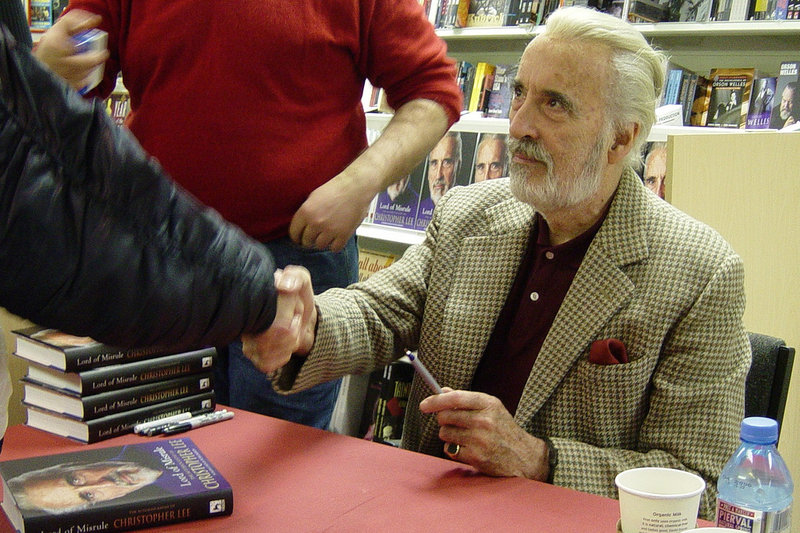 "I was not always pro-nuclear power," former Environmental Protection Agency administrator Carol Browner declared Wednesday at the Advanced Nuclear Summit and Showcase in Washington, D.C. She changed her mind 12 years ago, because she "couldn't be responsible about my views on climate change and carbon pollution without taking this clean energy source seriously." Now Browner has joined the Nuclear Matters' Leadership Council, which seeks to make sure America's 99 operating nuclear power plants—which currently supply nearly 20 percent of the country's electricity and two thirds of its no-carbon electric power—are not unnecessarily and prematurely shut down.
"I was not always pro-nuclear power," former Environmental Protection Agency administrator Carol Browner declared Wednesday at the Advanced Nuclear Summit and Showcase in Washington, D.C. She changed her mind 12 years ago, because she "couldn't be responsible about my views on climate change and carbon pollution without taking this clean energy source seriously." Now Browner has joined the Nuclear Matters' Leadership Council, which seeks to make sure America's 99 operating nuclear power plants—which currently supply nearly 20 percent of the country's electricity and two thirds of its no-carbon electric power—are not unnecessarily and prematurely shut down.
The Summit, organized by the self-described centrist think tank Third Way, featured panel discussions on advanced power plant designs, how the private sector was financing new plants, and what the federal government could do help jumpstart a nuclear era. Like Browner, many participants argued that ramping up nuclear power is necessary to help avoid the climate change produced by burning fossil fuels. Ross Koningstein, who headed up an energy supply study for Google, asserted that in the best-case scenario renewables like solar and wind could cut U.S. greenhouse gas emissions by around 50 percent. If climate change is a problem, they argued, then nuclear power must be part of the solution.
So what's standing in the way of building innovative new nuclear plants? Regulation. The summiteers danced around this a bit; after all, disrespecting the Nuclear Regulatory Commission (NRC) bureaucrats in attendance is not a good way to get your project to the head of the administrative queue. More on that below.
 But first, the most exciting part of the conference: the showcase of new nuclear technologies being developed by various companies. One of the more intriguing designs is Terrapower's traveling wave reactor, a fast reactor that will use depleted uranium as a fuel source. Depleted uranium is now essentially a waste product leftover from producing fuel for conventional reactors. The company signed a memorandum of understanding last year with the China National Nuclear Corporation with the goal of building a 600-megawatt demonstration plant by 2020.
But first, the most exciting part of the conference: the showcase of new nuclear technologies being developed by various companies. One of the more intriguing designs is Terrapower's traveling wave reactor, a fast reactor that will use depleted uranium as a fuel source. Depleted uranium is now essentially a waste product leftover from producing fuel for conventional reactors. The company signed a memorandum of understanding last year with the China National Nuclear Corporation with the goal of building a 600-megawatt demonstration plant by 2020.
 Transatomic is developing a molten salt reactor. The low-enriched uranium is dissolved in lithium fluoride salt that enables the reactor to burn nuclear spent fuel to produce heat to drive the turbines that generate electricity. The company claims that its reactors could convert the current stock of 270,000 tons of spent nuclear fuel into enough energy to power the entire world for 72 years. They also claim that their reactors would be "walk away safe." Unlike conventional light water reactors, Transatomic reactors operate at atmospheric pressure; if the reactor should lose electrical power, the molten contents would dissolve a salt plug and safely drain out into an auxiliary container, where it would cool and freeze in just a few hours.
Transatomic is developing a molten salt reactor. The low-enriched uranium is dissolved in lithium fluoride salt that enables the reactor to burn nuclear spent fuel to produce heat to drive the turbines that generate electricity. The company claims that its reactors could convert the current stock of 270,000 tons of spent nuclear fuel into enough energy to power the entire world for 72 years. They also claim that their reactors would be "walk away safe." Unlike conventional light water reactors, Transatomic reactors operate at atmospheric pressure; if the reactor should lose electrical power, the molten contents would dissolve a salt plug and safely drain out into an auxiliary container, where it would cool and freeze in just a few hours.
 The Canadian/U.S. Terrestrial Energy is also developing a molten salt reactor. Terrestrial's Integral Molten Salt Reactor design is fashioned around core units that function for seven years and then are swapped out for new units. The company is seeking regulatory approval for its first plant in Canada, which would begin generating power in the early 2020s. The company makes the remarkable claim that the levelized cost of its electricity—that is, the cost taking capital, fuel, operation, and maintenance into account—would be 4 to 5 cents per kilowatt-hour. The U.S. Energy Information Administration estimates that the levelized cost of electricity from natural gas power plants is around 7 to 8 cents per kilowatt-hour.
The Canadian/U.S. Terrestrial Energy is also developing a molten salt reactor. Terrestrial's Integral Molten Salt Reactor design is fashioned around core units that function for seven years and then are swapped out for new units. The company is seeking regulatory approval for its first plant in Canada, which would begin generating power in the early 2020s. The company makes the remarkable claim that the levelized cost of its electricity—that is, the cost taking capital, fuel, operation, and maintenance into account—would be 4 to 5 cents per kilowatt-hour. The U.S. Energy Information Administration estimates that the levelized cost of electricity from natural gas power plants is around 7 to 8 cents per kilowatt-hour.
Oklo, formerly named UPower, aims to create small 2-megawatt reactors that fit inside a shipping container. The reactors would compete with small diesel generators that are often used to generate electricity in remote off-grid locations. (The fact that the company changed its name to the site of an ancient natural nuclear reactor is intriguing.)
 Advanced Reactor Concepts is developing a 100-megawatt modular sodium-cooled reactor. The company's chief technology officer, John Sackett, told the audience that "much advanced nuclear technology is ready to go"—given the "right regulatory structure."
Advanced Reactor Concepts is developing a 100-megawatt modular sodium-cooled reactor. The company's chief technology officer, John Sackett, told the audience that "much advanced nuclear technology is ready to go"—given the "right regulatory structure."
But essentially all the panelists agreed that the current regulatory structure is far from "right."
 For example, Joseph Lassiter of Harvard Business School observed that due to sluggish U.S. regulatory oversight, several innovative American nuclear companies are looking abroad to build their first plants. As noted, Terrapower is working with Chinese partners; Terrestrial Energy will build in Canada; and ThorCon Power has signed a memorandum of understanding with state-owned Indonesian energy companies to develop thorium molten salt reactors.
For example, Joseph Lassiter of Harvard Business School observed that due to sluggish U.S. regulatory oversight, several innovative American nuclear companies are looking abroad to build their first plants. As noted, Terrapower is working with Chinese partners; Terrestrial Energy will build in Canada; and ThorCon Power has signed a memorandum of understanding with state-owned Indonesian energy companies to develop thorium molten salt reactors.
Naturally, the NRC's representatives pleaded that it was all that the agency could do to oversee the safety of the country's current fleet of reactors, many of which will be coming up for their second relicense renewals soon. If the NRC does not authorize them to operate for an additional 20 years, they may have to be replaced with new power plants that burn carbon-emitting fossil fuels.
One big roadblock to innovation is that under the NRC's enabling legislation, the agency is only able to consider approving a new power plant when its application is complete, noted Jennifer Uhle, head of the Office of New Reactors. Filing a complete application requires doing all of the engineering and legal work in advance. That generally takes a decade for conventional designs financed by giant utility companies. Entrepreneurs pursuing innovative designs don't have the capital to endure this.
Former NRC commissioner Jeffrey Merrifield observed that the agency's licensing framework was developed in 1981, the year that IBM introduced its first PC. He pointedly suggested that it's time that regulatory framework be updated for more nimble iPhone era. Ray Rothrock, partner emeritus of the venture fund Venrock, said the number one issue holding back investment in advanced nuclear projects is financial risk. He added that in the nuclear energy field, financial risk is "just a reflection of regulatory risk." Rothrock called for a risk-based review process where the NRC can give companies step-by-step approval. If the regulatory process were more certain, entrepreneurs could point to their successful approval milestones when soliciting additional funding from investors.
At the summit's conclusion, Sen. Mike Crapo (R-Idaho) touted his new bill, the Nuclear Energy Innovation Capabilities Act. This would, among other things, establish a joint NRC-Department of Energy National Nuclear Innovation Center to "enable the testing and demonstration of reactor concepts to be proposed and funded, in whole, or in part, by the private sector." The law would also instruct the NRC to devise a regulatory framework under which the agency would be capable of licensing advanced nuclear designs within a period of four years. The Senate passed the bill the day after the summit, on an 87 to 4 vote.
If advanced nuclear power is to play a significant role in cutting carbon dioxide emissions, the summiteers concurred that pilot plants must be up and running by the early 2020s in order to be ready to deploy massively by 2030. At the meeting's conclusion, Crapo declared that we are on the verge of "mind-blowing achievements in nuclear science." To judge from the profusion of innovative designs on display at the showcase, the senator may just be right.
 Republican Arizona Sen. Jeff Flake, known for his libertarian leanings and more recently for his critique of President Donald Trump's behavior, announced today he will not be running for re-election next year.
Republican Arizona Sen. Jeff Flake, known for his libertarian leanings and more recently for his critique of President Donald Trump's behavior, announced today he will not be running for re-election next year.

 "I was not always pro-nuclear power," former Environmental Protection Agency administrator Carol Browner declared Wednesday at the
"I was not always pro-nuclear power," former Environmental Protection Agency administrator Carol Browner declared Wednesday at the  But first, the most exciting part of the conference: the showcase of new nuclear technologies being developed by various companies. One of the more intriguing designs is
But first, the most exciting part of the conference: the showcase of new nuclear technologies being developed by various companies. One of the more intriguing designs is  Transatomic
Transatomic The Canadian/U.S.
The Canadian/U.S.  Advanced Reactor Concepts
Advanced Reactor Concepts For example, Joseph Lassiter of Harvard Business School observed that due to sluggish U.S. regulatory oversight, several innovative American nuclear companies are looking abroad to build their first plants. As noted, Terrapower is working with Chinese partners; Terrestrial Energy will build in Canada; and
For example, Joseph Lassiter of Harvard Business School observed that due to sluggish U.S. regulatory oversight, several innovative American nuclear companies are looking abroad to build their first plants. As noted, Terrapower is working with Chinese partners; Terrestrial Energy will build in Canada; and 


 Alec Baldwin had a run-in with the New York City Police Department (NYPD) today that resulted in some fine frustrated tweeting from the notoriously blunt actor. Baldwin was initially stopped for "riding his bicycle the wrong way" down Fifth Avenue and eventually arrested for disorderly conduct,
Alec Baldwin had a run-in with the New York City Police Department (NYPD) today that resulted in some fine frustrated tweeting from the notoriously blunt actor. Baldwin was initially stopped for "riding his bicycle the wrong way" down Fifth Avenue and eventually arrested for disorderly conduct, 

